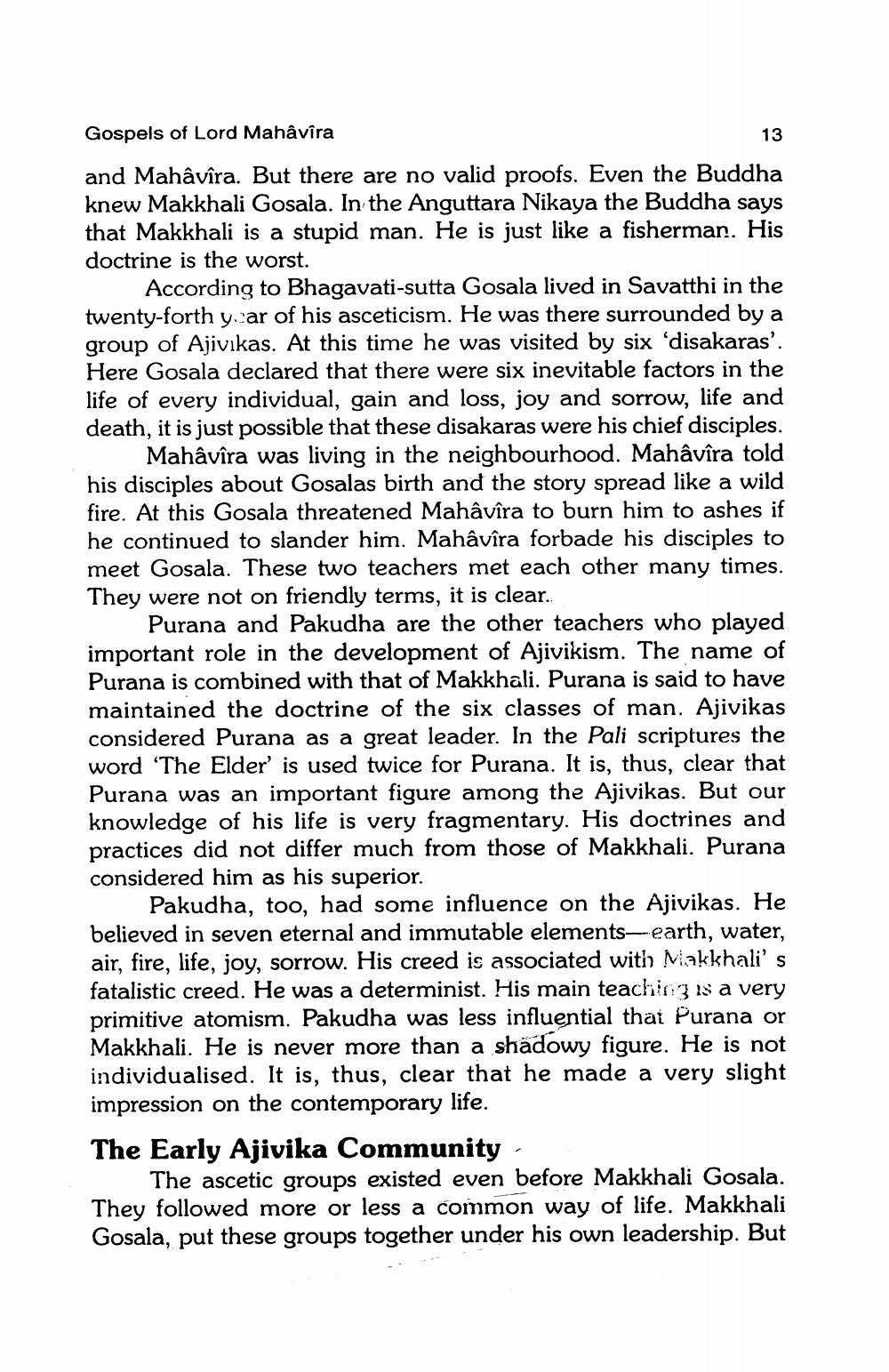________________
Gospels of Lord Mahâvîra
13 and Mahâvîra. But there are no valid proofs. Even the Buddha knew Makkhali Gosala. In the Anguttara Nikaya the Buddha says that Makkhali is a stupid man. He is just like a fisherman. His doctrine is the worst.
According to Bhagavati-sutta Gosala lived in Savatthi in the twenty-forth year of his asceticism. He was there surrounded by a group of Ajivikas. At this time he was visited by six 'disakaras'. Here Gosala declared that there were six inevitable factors in the life of every individual, gain and loss, joy and sorrow, life and death, it is just possible that these disakaras were his chief disciples.
Mahâvîra was living in the neighbourhood. Mahâvîra told his disciples about Gosalas birth and the story spread like a wild fire. At this Gosala threatened Mahâvîra to burn him to ashes if he continued to slander him. Mahâvîra forbade his disciples to meet Gosala. These two teachers met each other many times. They were not on friendly terms, it is clear.
Purana and Pakudha are the other teachers who played important role in the development of Ajivikism. The name of Purana is combined with that of Makkhali. Purana is said to have maintained the doctrine of the six classes of man. Ajivikas considered Purana as a great leader. In the Pali scriptures the word 'The Elder' is used twice for Purana. It is, thus, clear that Purana was an important figure among the Ajivikas. But our knowledge of his life is very fragmentary. His doctrines and practices did not differ much from those of Makkhali. Purana considered him as his superior.
Pakudha, too, had some influence on the Ajivikas. He believed in seven eternal and immutable elements-earth, water, air, fire, life, joy, sorrow. His creed is associated with Nakkhali's fatalistic creed. He was a determinist. His main teaching is a very primitive atomism. Pakudha was less influential that Purana or Makkhali. He is never more than a shadowy figure. He is not individualised. It is, thus, clear that he made a very slight impression on the contemporary life. The Early Ajivika Community
The ascetic groups existed even before Makkhali Gosala. They followed more or less a common way of life. Makkhali Gosala, put these groups together under his own leadership. But




